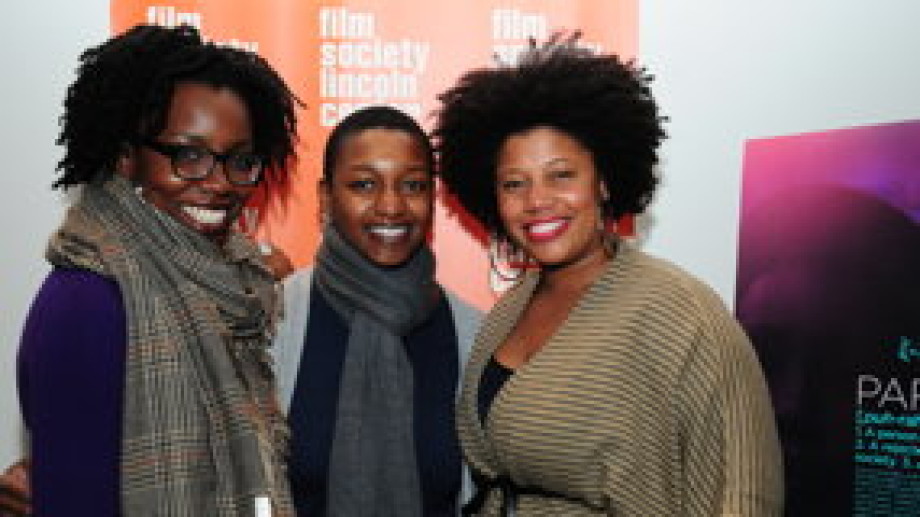
Adepero Oduye, Nekisa Cooper and Pernell Walker. Photo by Julie Cunnah.
After quickly becoming a crowd favorite at the 2011 Sundance Film Festival—and picking up an award there for Excellence in Cinematography to boot—Dee Rees's Pariah came to the 2011 New Directors/New Films festival with huge buzz. Nine months later the film bowed at the Elinor Bunin Munroe Film Center to equally favorable reviews. To celebrate its opening, stars Adepero Oduye and Pernell Walker and producer Nekisa Cooper were in person for a Q&A following a screening of the film on December 29, moderated by Film Society's Richard Peña.
Pariah's journey started when director Dee Rees wrote the screenplay for a feature length film while she was interning on the set of Spike Lee's Inside Man. Due to lack of funds, it was first realized as a short film in 2007. The short then gave way to a stint at Sundance Screenwriters Lab, where it was eventually turned into a feature film.
One of the points repeatedly emphasized at the Q&A was how the relationships between characters on screen felt very natural. Producer Nekisa Cooper attributed this quality of Pariah to Rees's disbelief in traditional rehersal process. Collaborative exercises between actors, being in character off set and conducting mock therapy sessions gave way to building shared experiences, thus creating a feeling of trust within the cast and crew.
In regards to social and educational aspect of the film, actress Pernell Walker said, “[Pariah] opened eyes and created a vivid dialogue with people” in communities where these issues were not being talked about. “What makes this movie great is no character is archetypal,” Oduye added. In addition, Oduye stressed the film's great potential to raise awareness and open up discussions in various communities. Cooper said that they are planning to create educational materials to accompany the film for use in schools.
Pariah tells the compelling story of Alike (pronounced ah-lee-kay), a 17-year-old African-American Brooklynite who, along with her family, is struggling to come to terms with her sexual identity. If you haven't already, there are still three days to catch Pariah on the big screen at Film Society! Below is full video of the Q&A with the cast and crew of Pariah, which A.O. Scott of The New York Times calls “sensitive but not sentimental, attuned to sexual and racial politics without succumbing to didacticism or piety. Pariah has a point to make, and a point of view to argue, but it also, above all, wants to illuminate an individual universe of meaning and emotion.”



